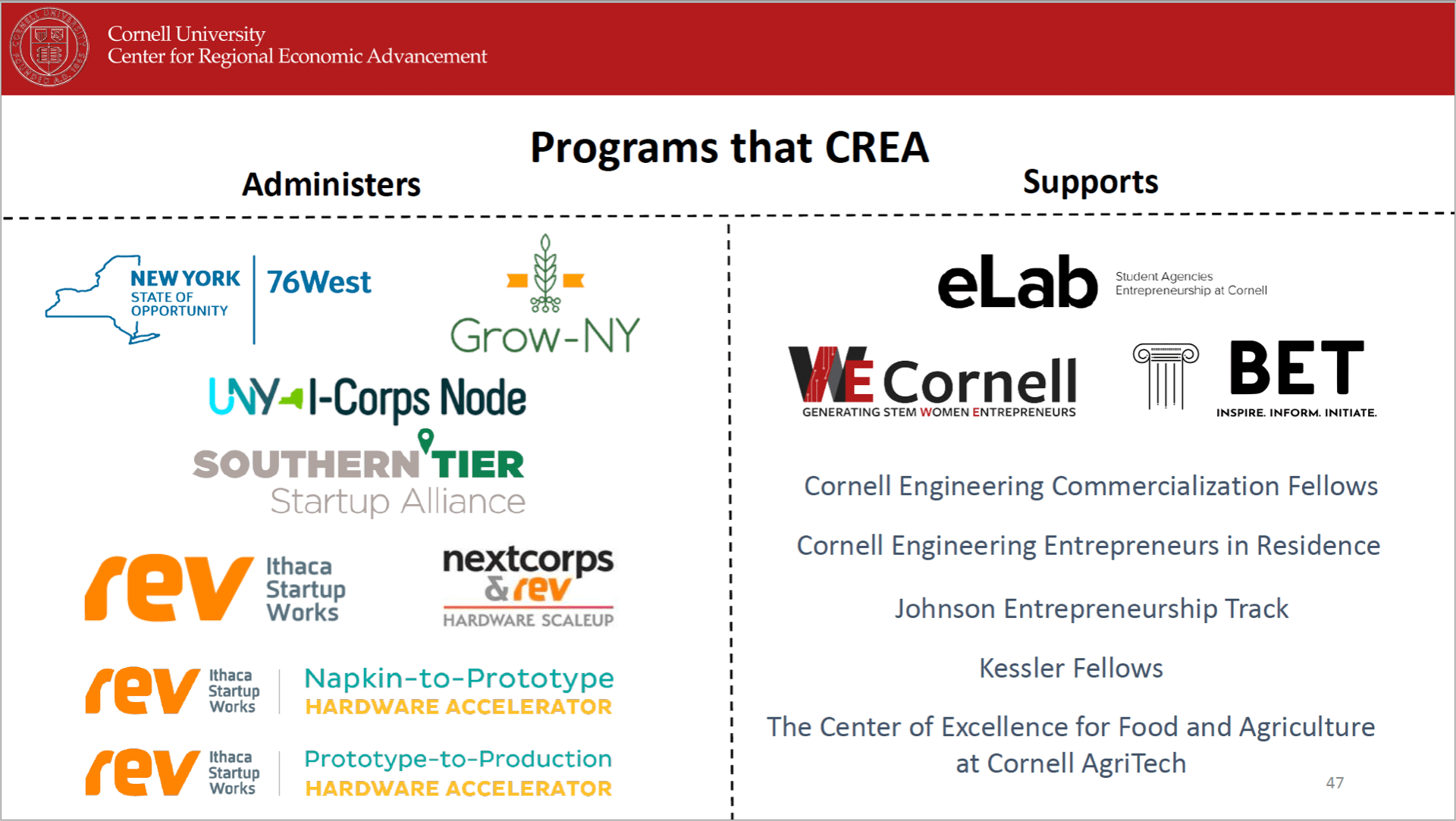Landscape of Economic Progress and Opportunity
The Center for Regional Economic Advancement at Cornell University presents the landscape of economic progress and opportunity in the Ithaca, NY region and at Cornell University. This report focuses on the economy of rural college towns and highlights programs that support economic development throughout New York State.

Part I: Ithaca, NY A Regional Overview
Ithaca, NY is a college town. About 1 in 5 workers in the county are employed by Cornell University. Thirty percent of the population are full-time college students. Despite being one of the smallest metros in the state, the Ithaca metro area has continued to grow its jobs and population over the past decade while other cities in Upstate NY have struggled.
Ithaca is centrally located near many mid-sized metropolitan areas including Syracuse, Rochester, Buffalo, and Albany.
Ithaca is also close to several large metropolitan areas including Toronto, New York City, Philadelphia, and Baltimore.
In 2018, the Ithaca metro area was home to just over 100,00 people. The City of Ithaca was home to 31,000 people (2018).
Although Ithaca has proved resilient during economic downturns and performs better than most of Upstate, it still falls short of New York state’s benchmarks for income and job growth. Downstate NY and the Capitol region (Albany) outperform Ithaca in income and job growth.
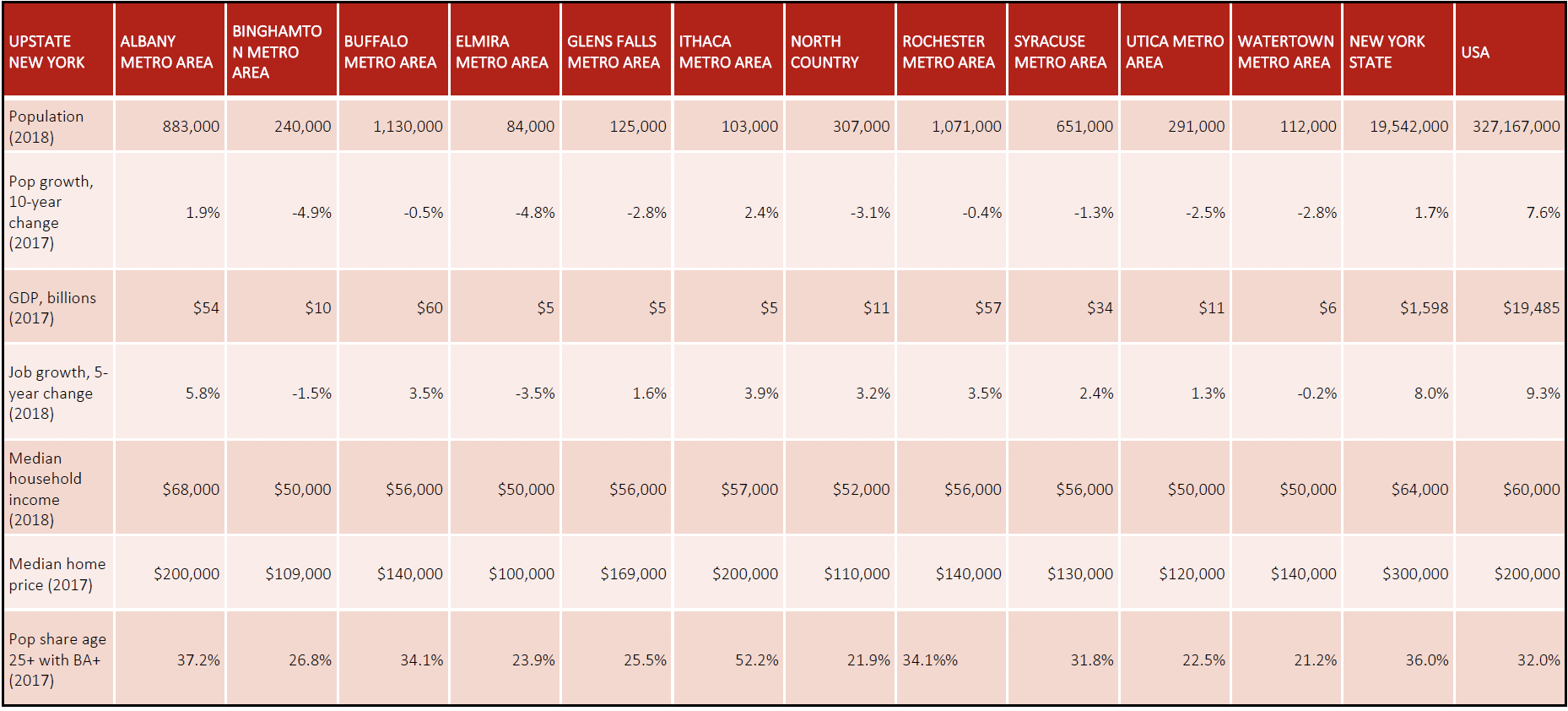
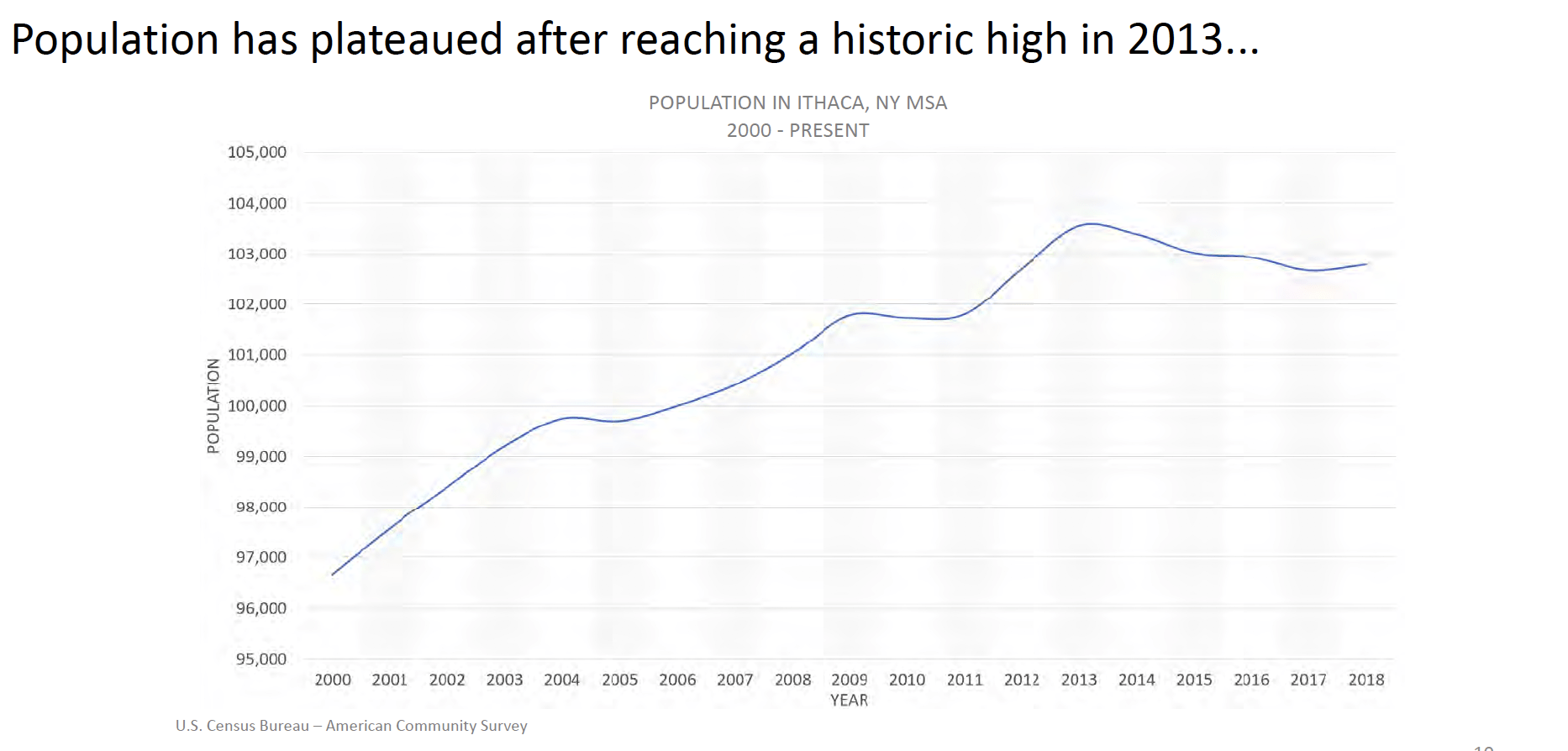
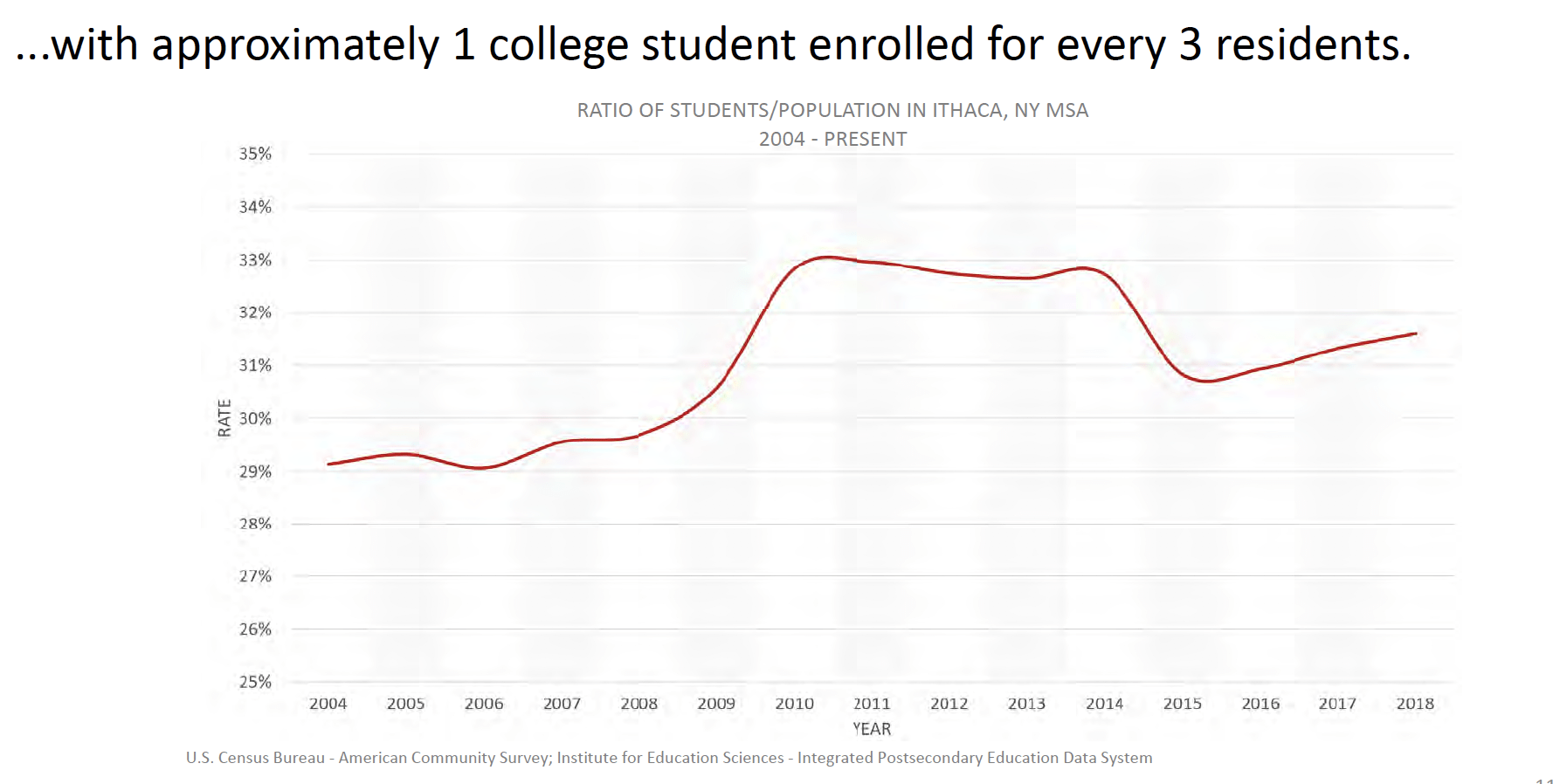
Employment is dominated by education, food service, and local government.
- 12,800; 26.8% employed by colleges, universities, and professional schools
- 3,598; 7.5% employed by restaurants and other eating places
- 2,701; 5.6% employed by elementary and secondary schools
- 2,357; 4.9% employed by local government, non-education
- 1,377; 2.9% employed by grocery stores
Unemployment rates in Ithaca rest around 3.5%.
Part II: Cornell University: An Overview
Cornell is a critical player in Ithaca’s economy and accounts for nearly 1 in 5 jobs in the Ithaca metro area.
As a land-grant institution and rural university, Cornell is unique among the Ivy League. Its resources are a critical innovation asset to the Ithaca area, and Upstate NY in general.
Cornell has the 13th largest higher education R&D expenditure in the nation.
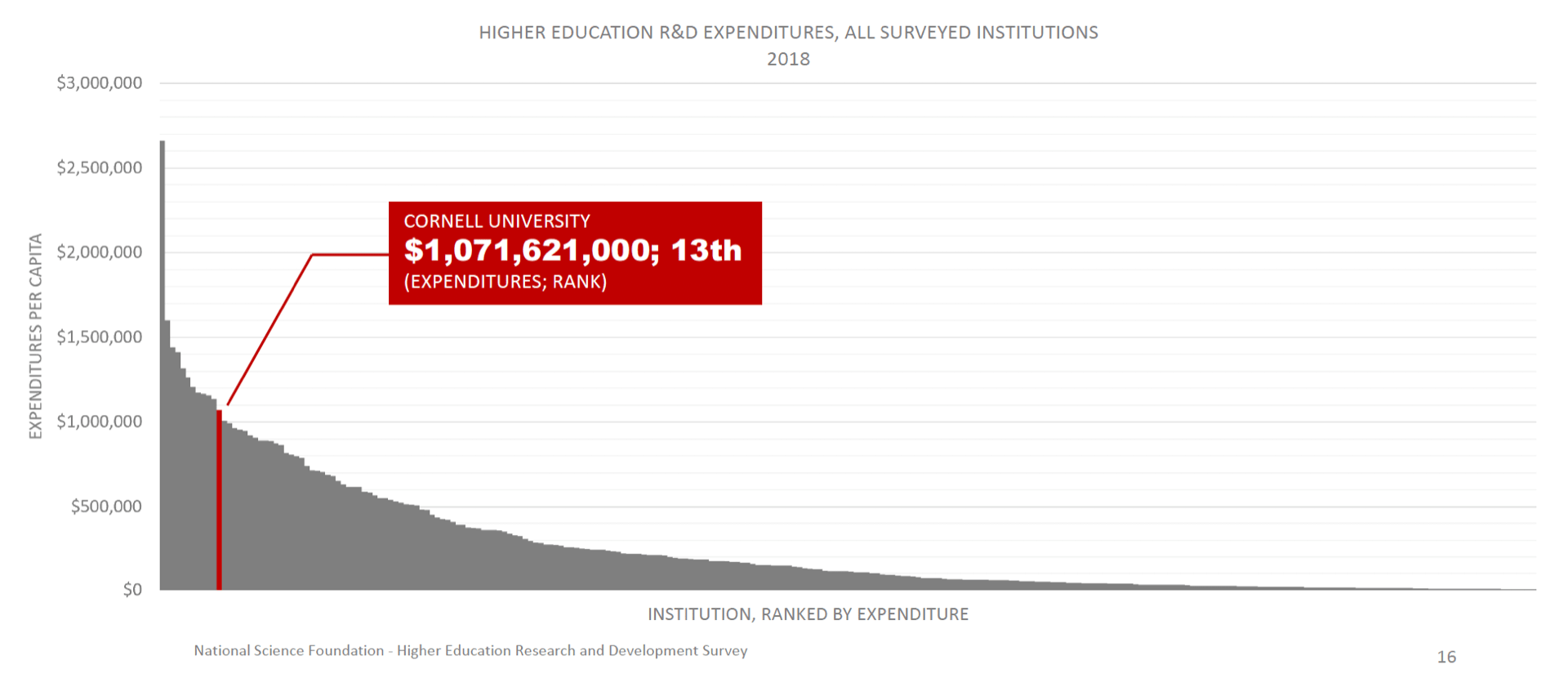
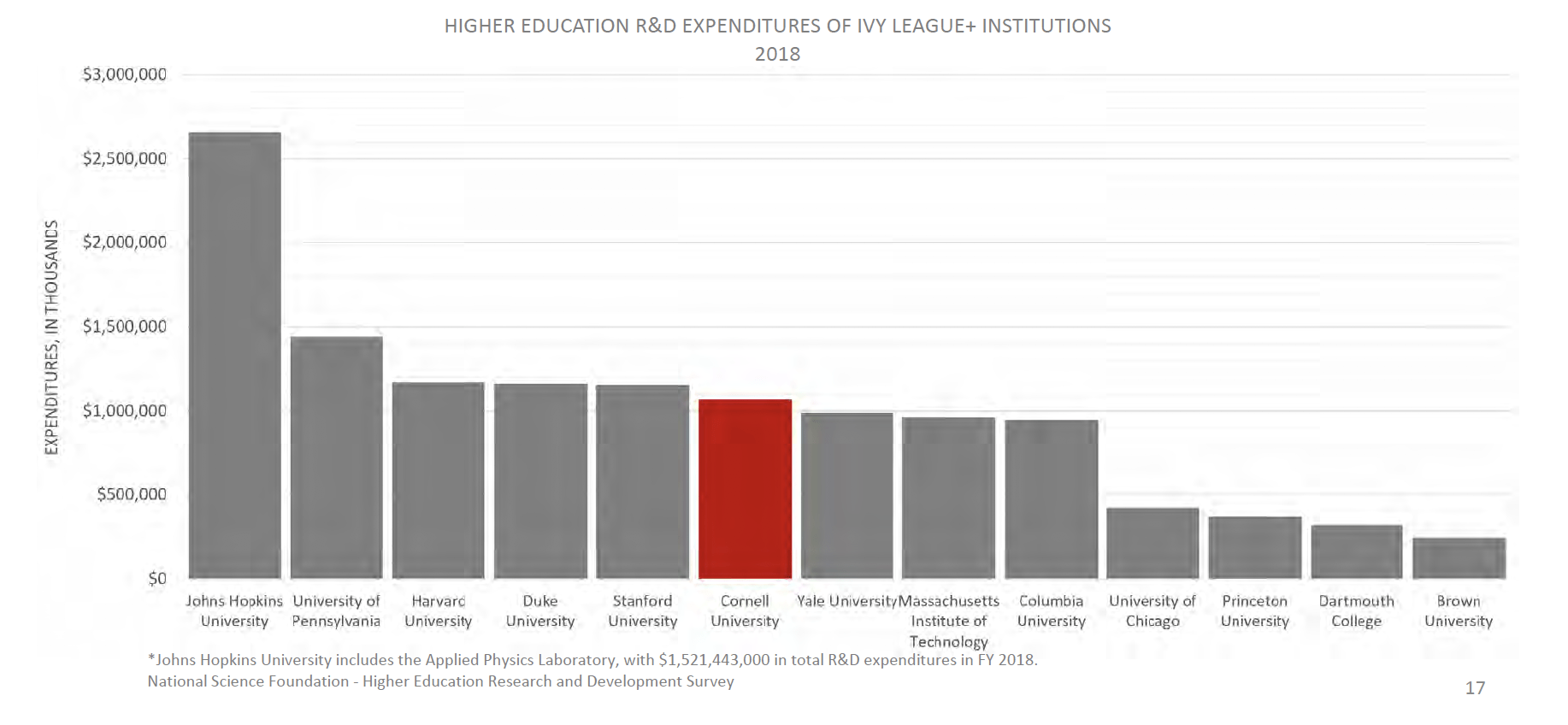
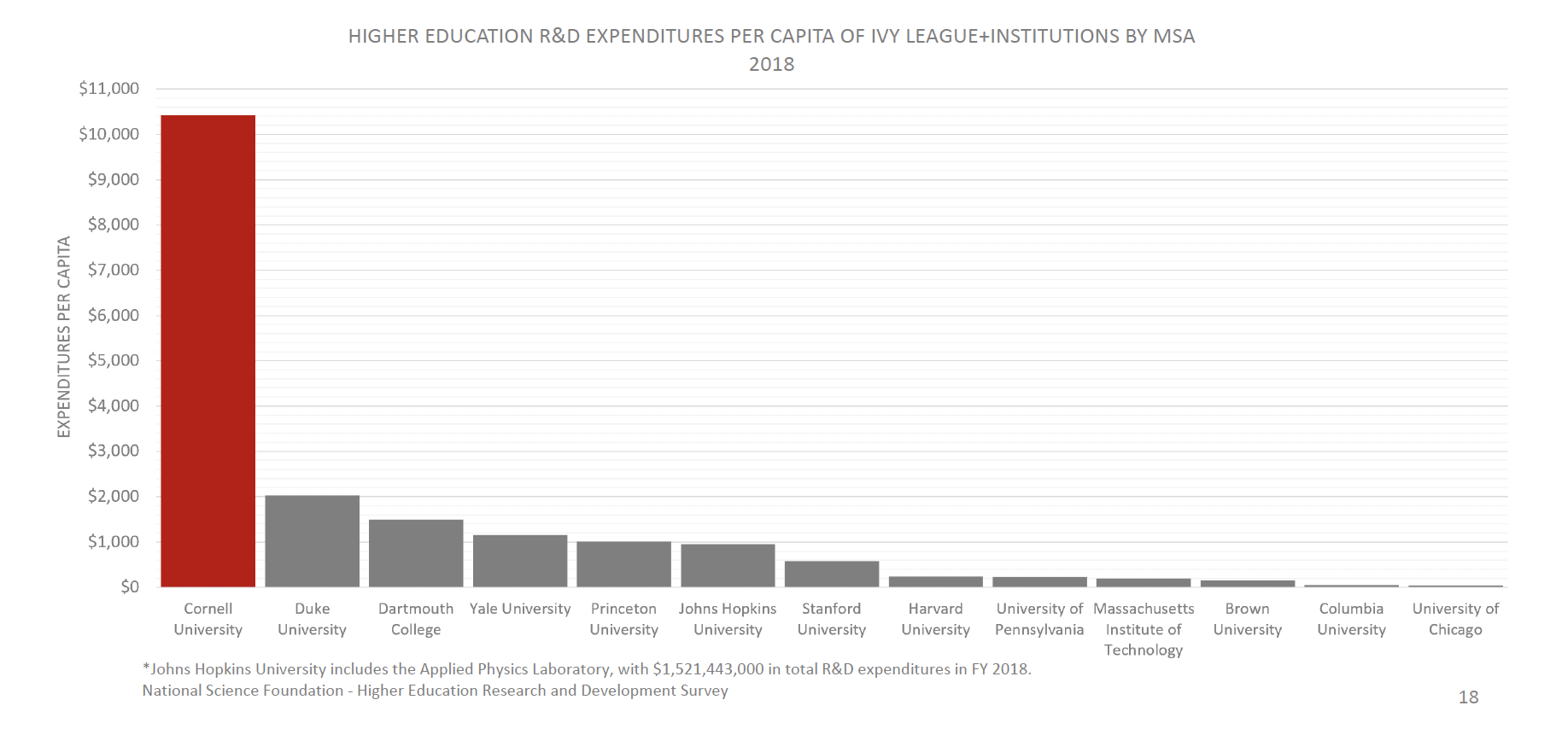
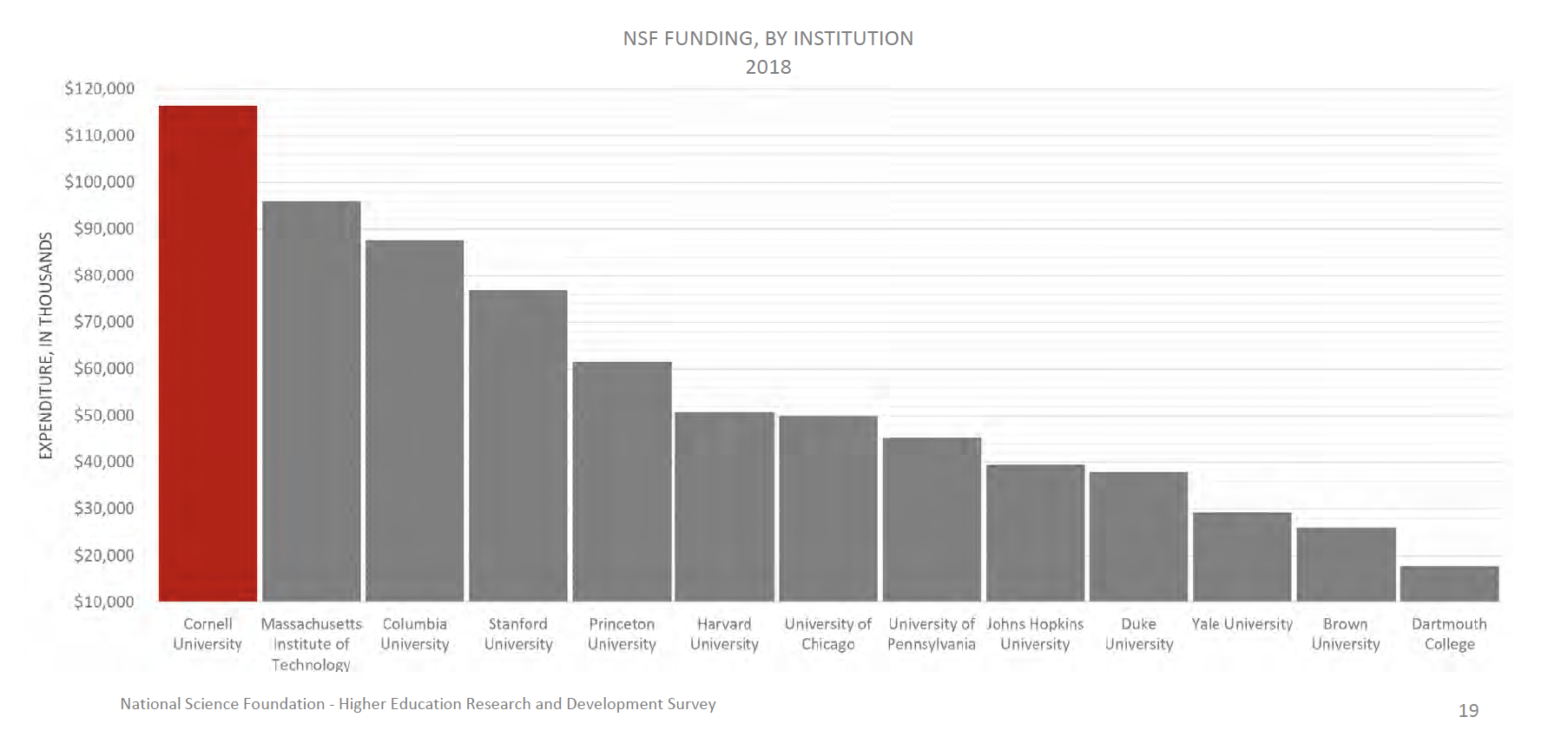
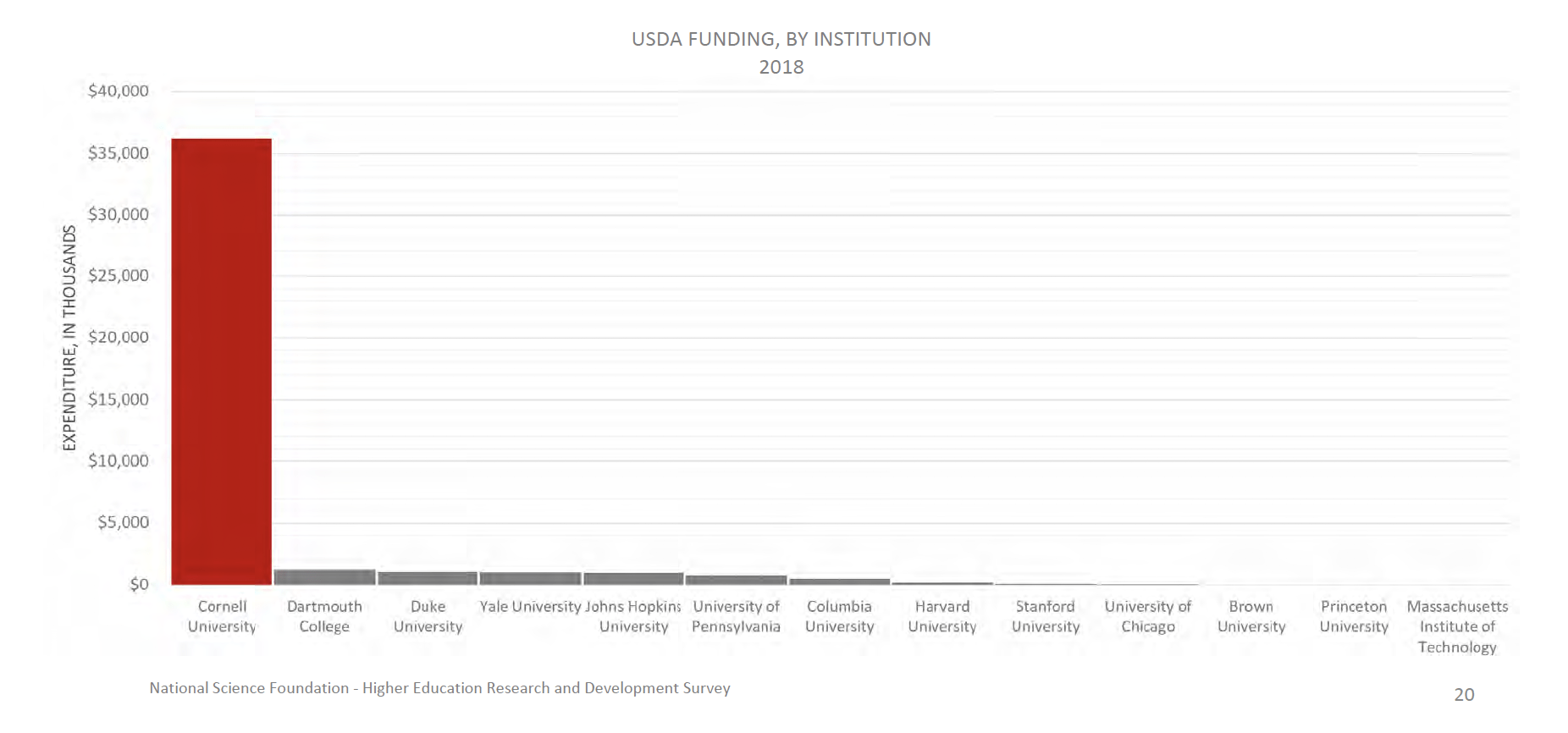
Cornell is an outlier among its peers, located in the smallest region of the group but performing highly in research funding and patent filings Per Capita.
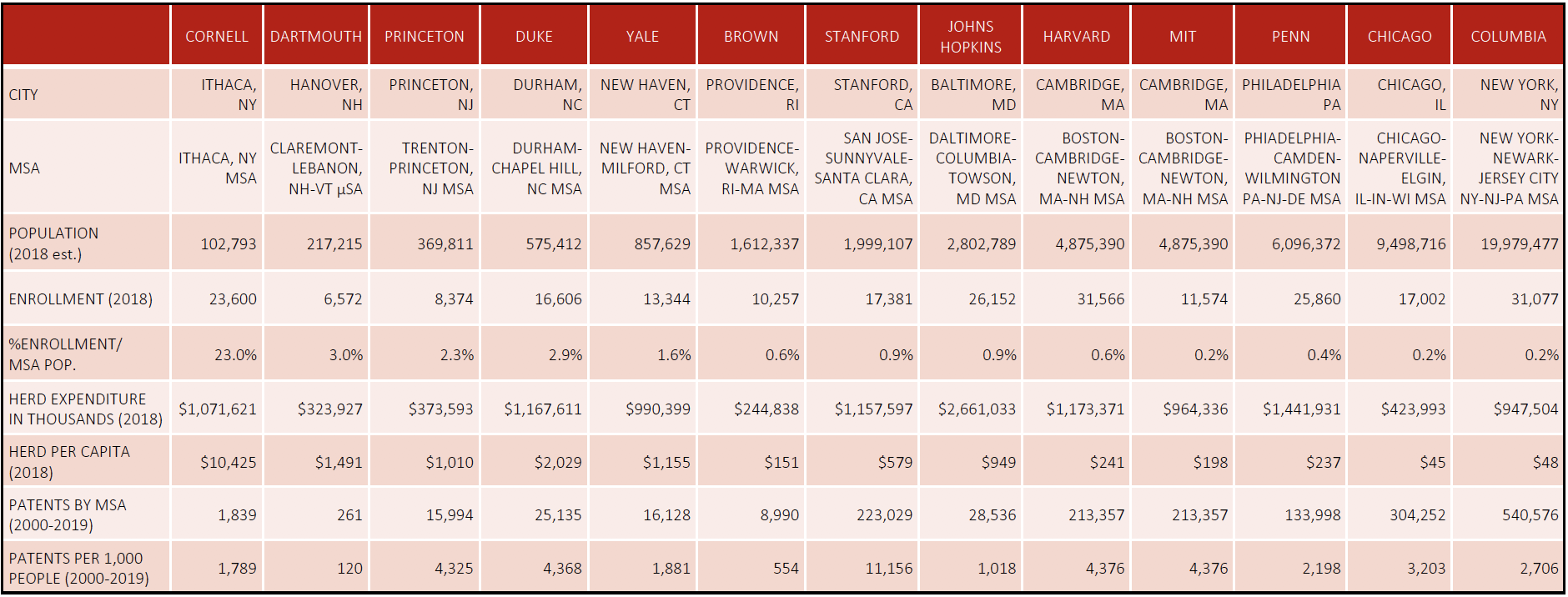
Part III: The Rural College Town and the Economy
Rural college towns with a research university share unique assets:
- High levels of educational attainment
- Significant funds for STEM fields and research
- Innovation clusters
Ithaca’s peer communities share similar research institutions, population size (<250,000), and proportion of enrolled students to total population (>20%).
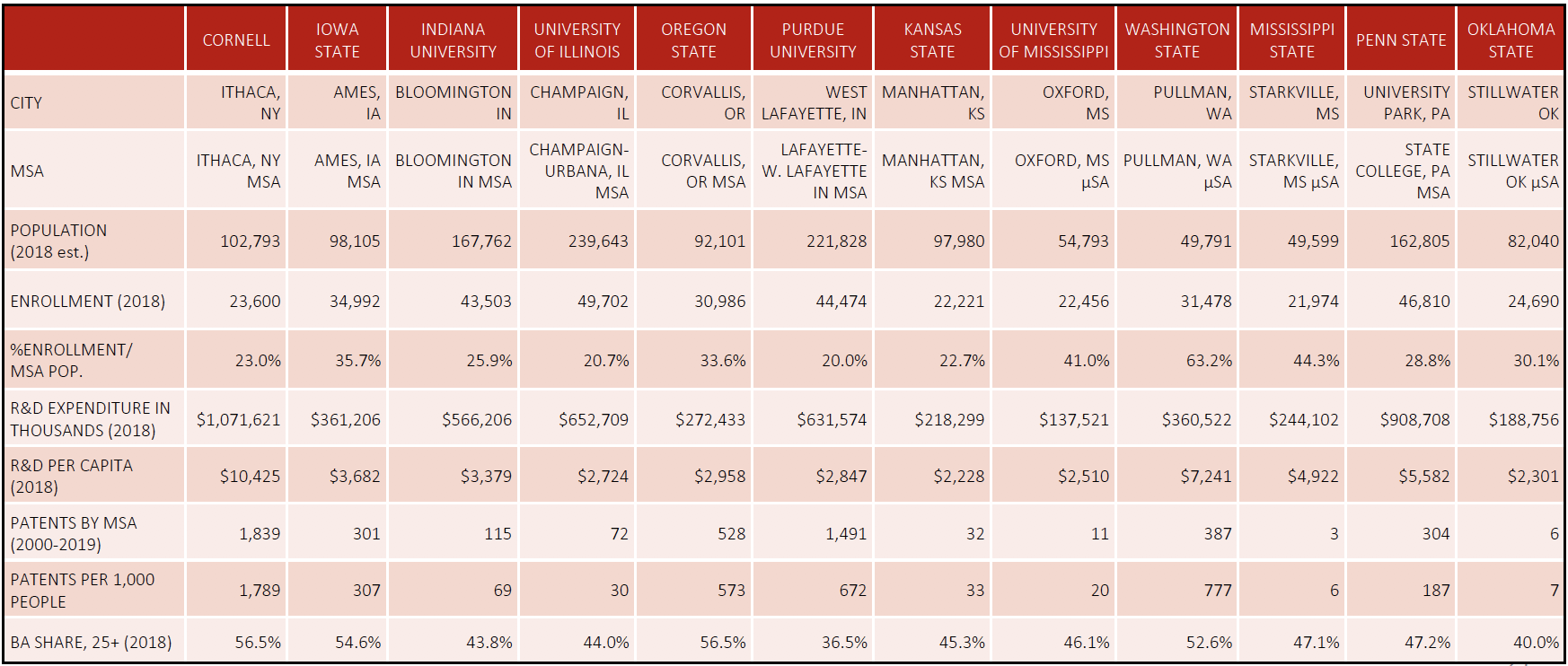
The relationship between Ithaca and Cornell University is similar to these communities, more so than the role Ive League Plus universities play in their communities. This could be meaningful for regional economic development strategy.
- 52.6% of the Ithaca region’s population has a bachelor’s degree or higher
- 85.2% of doctoral degrees granted in the region are in STEM fields
- A quarter of all doctoral degrees are in the life sciences
Higher education R&D expenditure in the Southern Tier ranks second in NYS
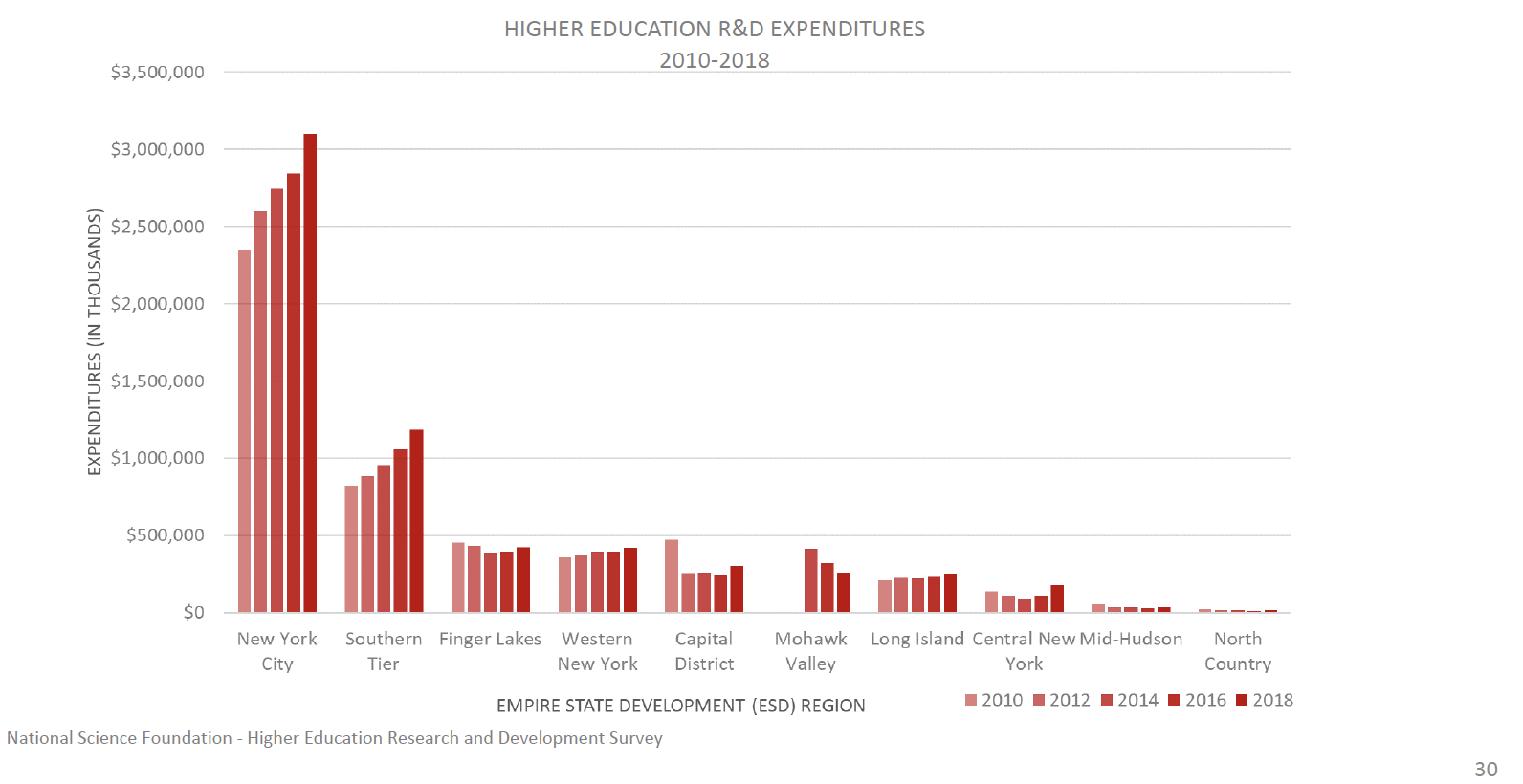
Cornell contributes almost half a billion dollars annually in salaries, wages and benefits from R&D jobs.
Cornell University Higher Education R&D Costs, By Source
- $470,441,000; 43.9%: Salaries, Wages, Fringe Benefits
- $281,662,000; 26.3%: Indirect Costs
- $202,907,000; 18.9%: Other Direct Costs
- $87,728,000; 8.2%: R&D Passed through to Sub-recipients
- $28,636,000; 2.7%: Equipment, Capitalized
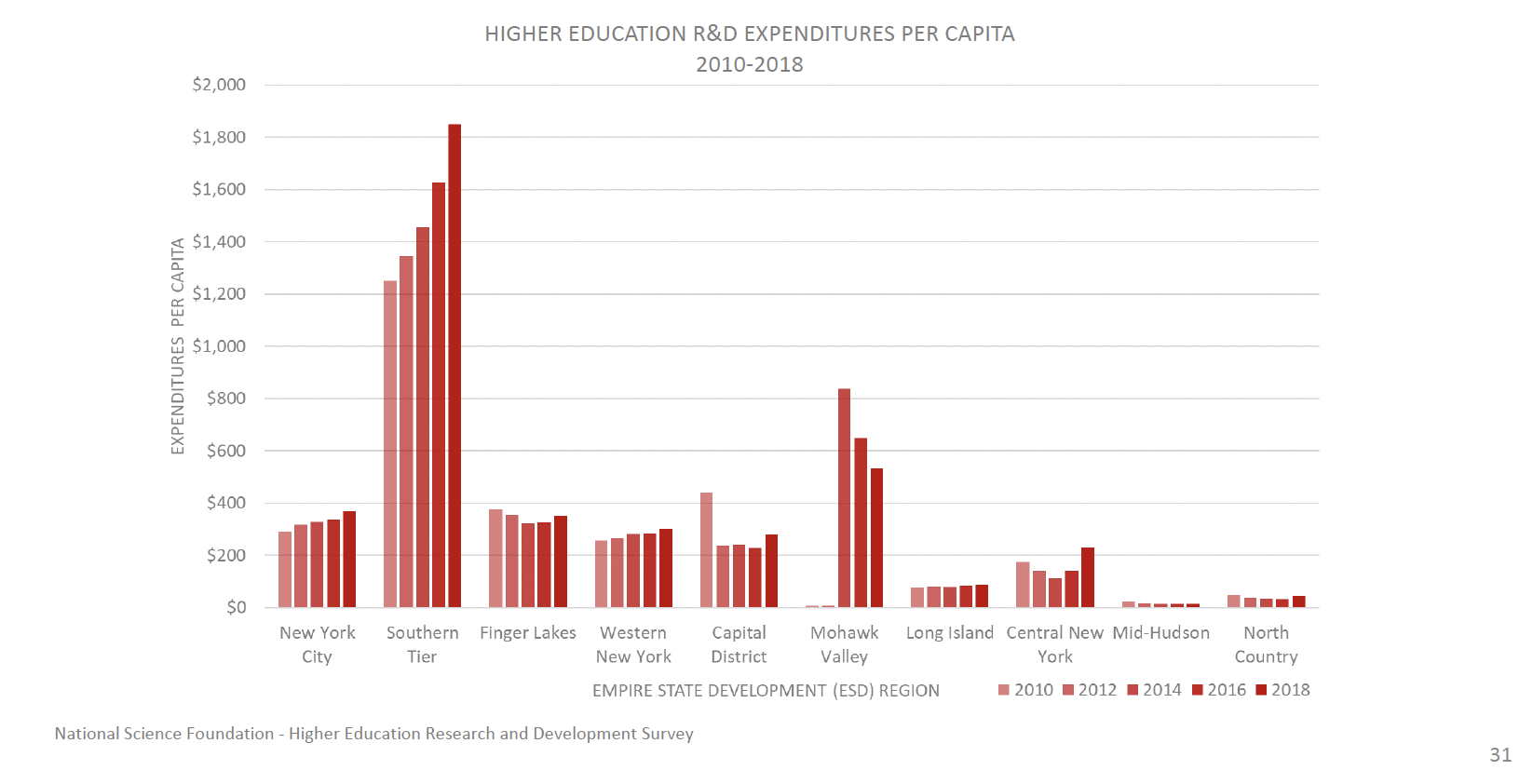
Life Sciences research accounts for 68.8% of the region’s expenditure.
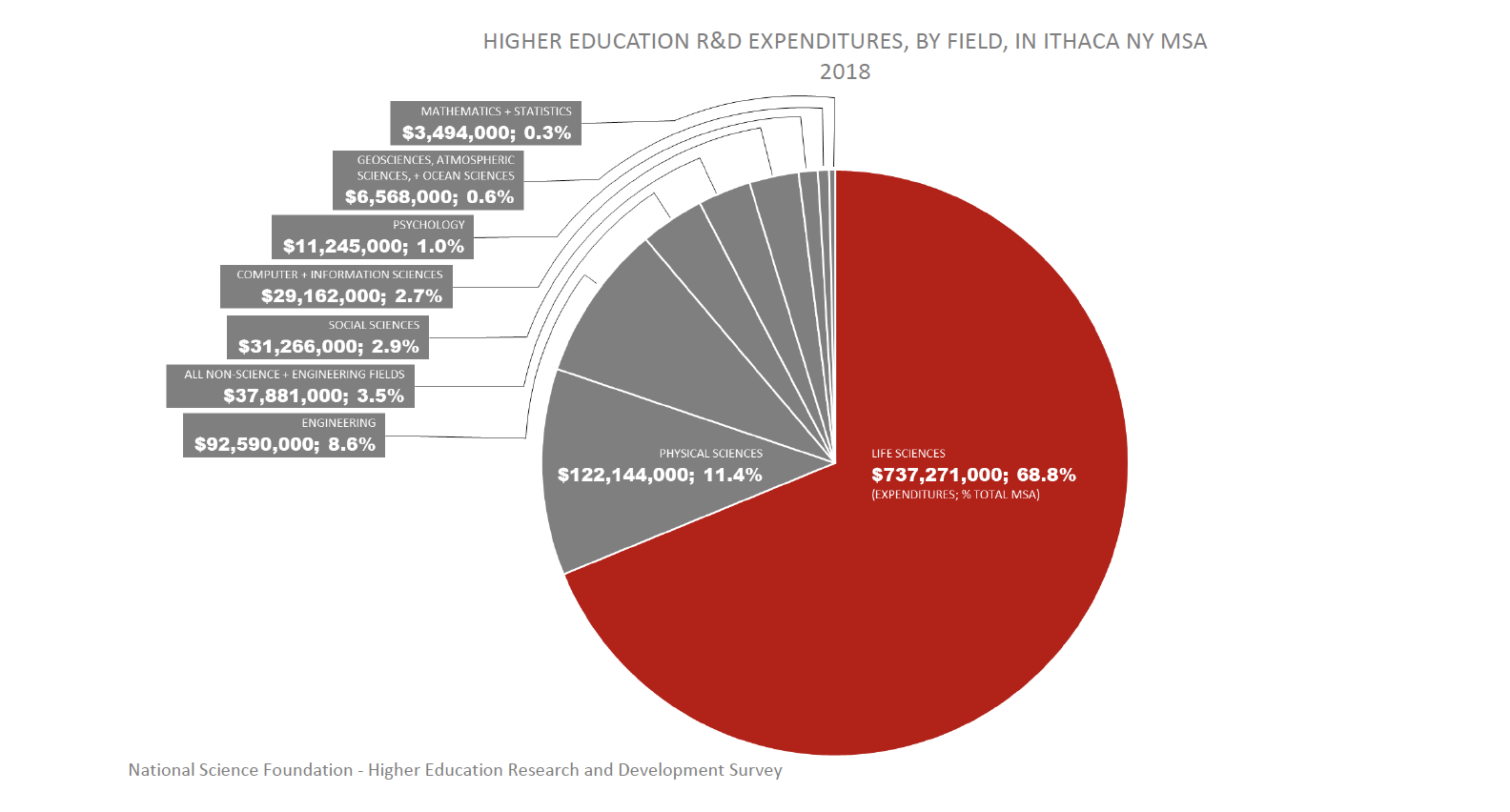
The federal government is the largest source of R&D funds at Cornell.
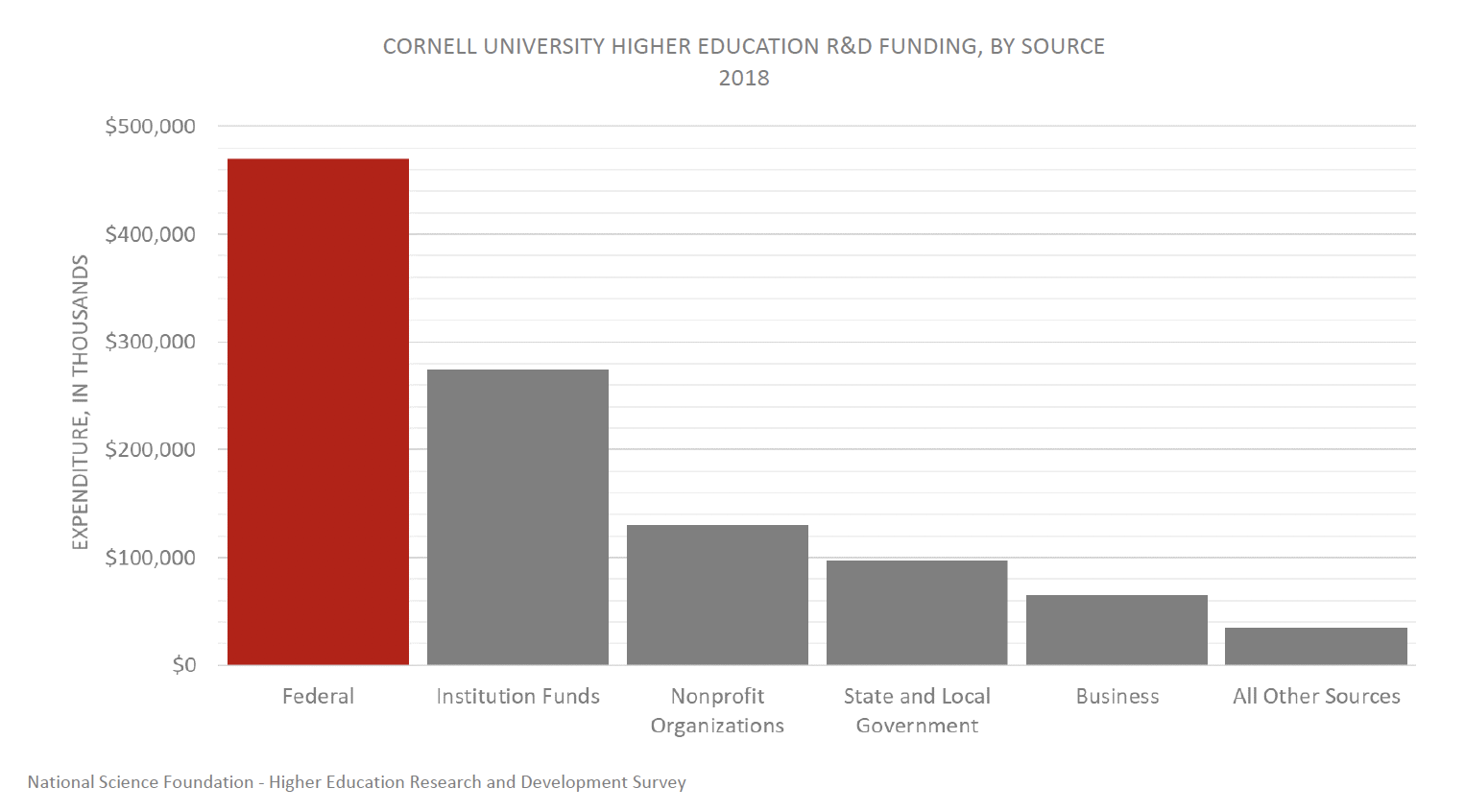
Ithaca’s SBIR/STTR award funding ranks second in New York State and is more than 10x greater than the nearest city Per Capita.
Part IV: How Does CREA Support the Regional Economy?
CREA fuels economic growth and diversity in Upstate New York through entrepreneurship and innovation. We support and empower people to start and grow new ventures by:
- Connect campus and community
- Leverage Cornell’s strengths in innovation and entrepreneurship
- Economies of scale
